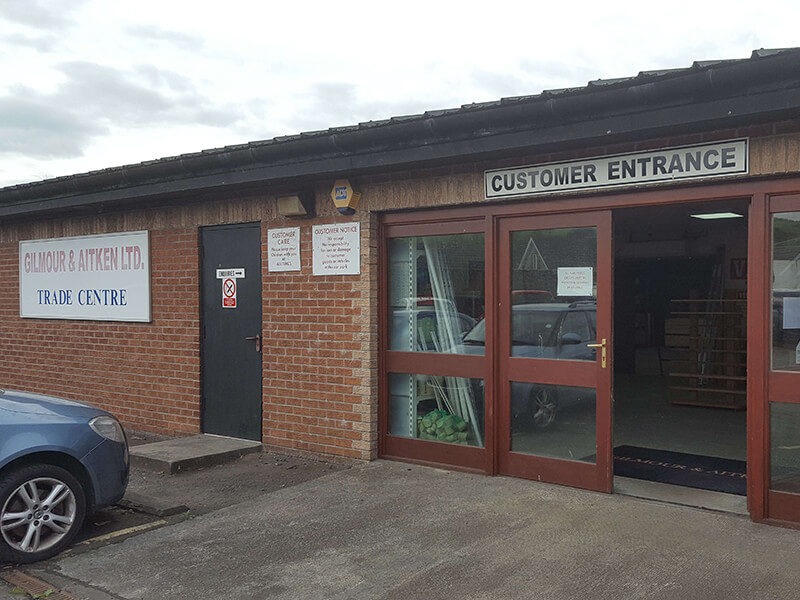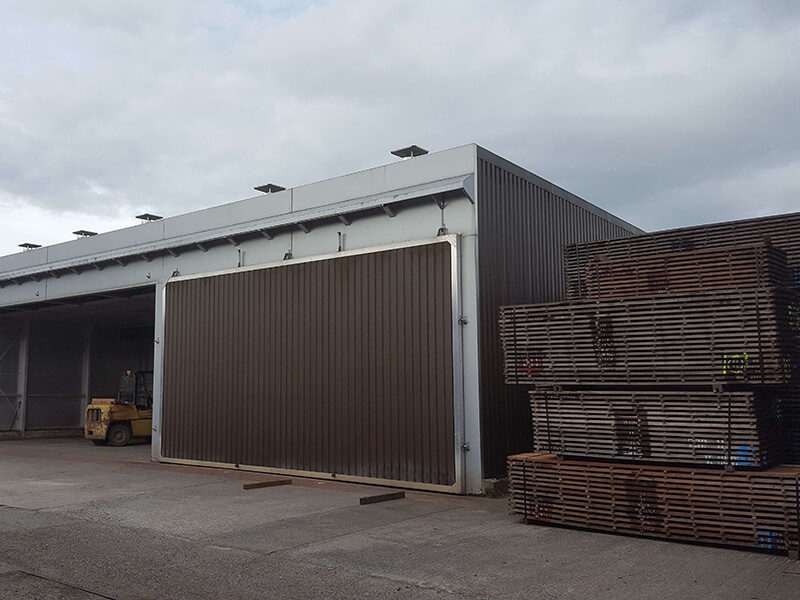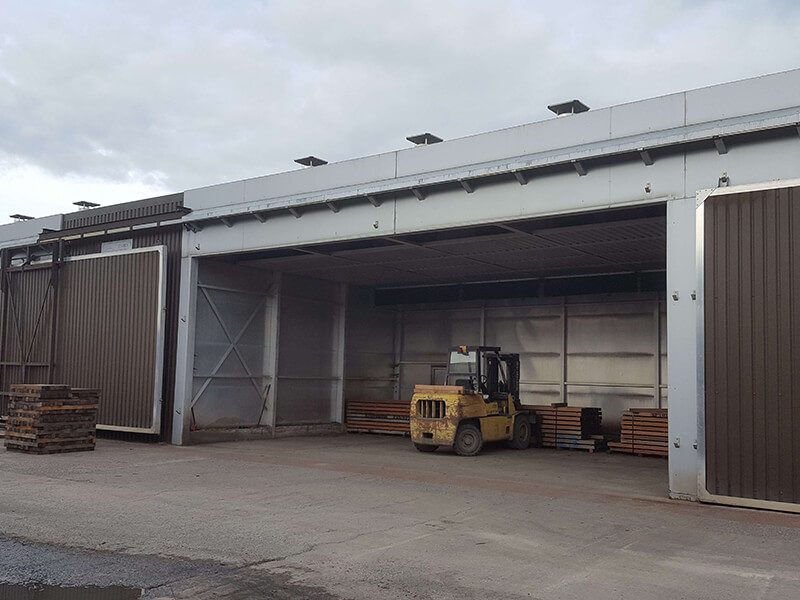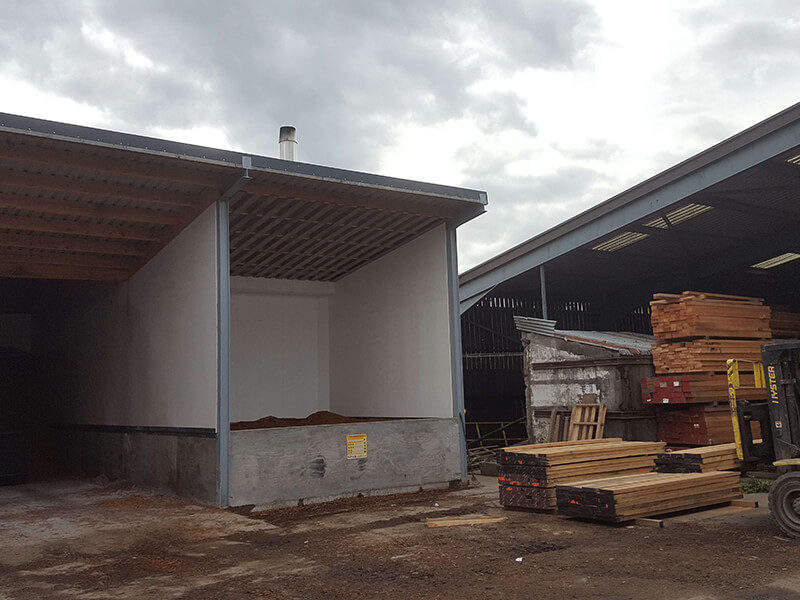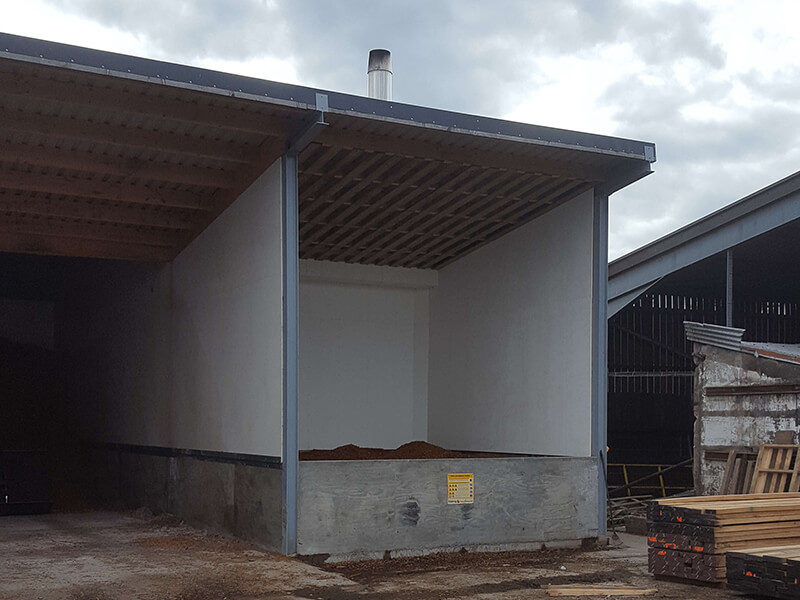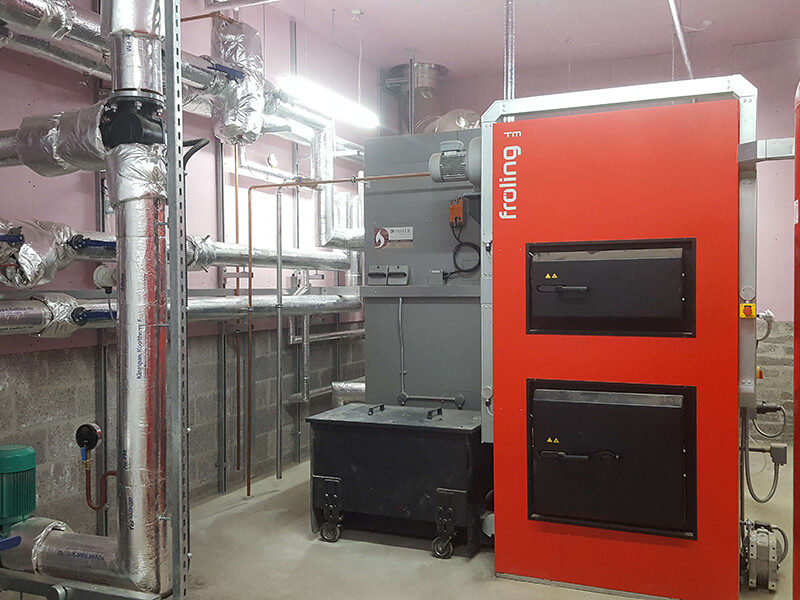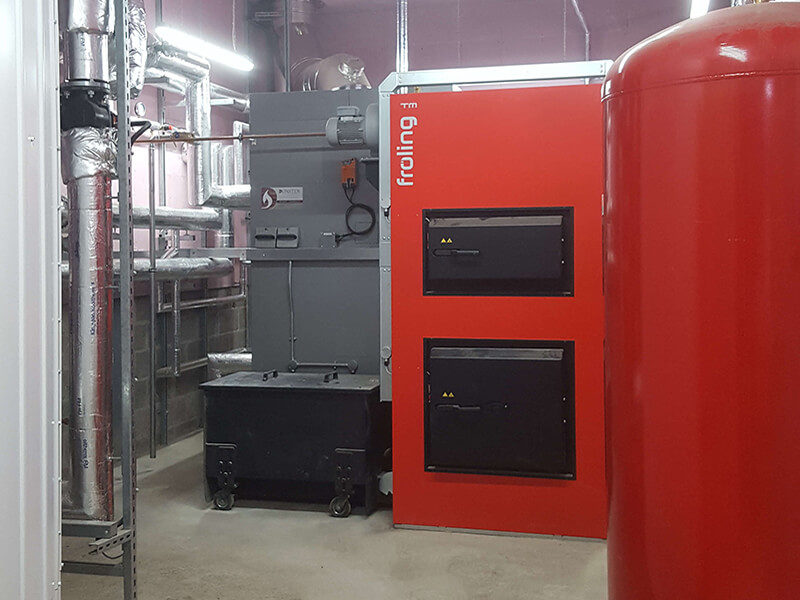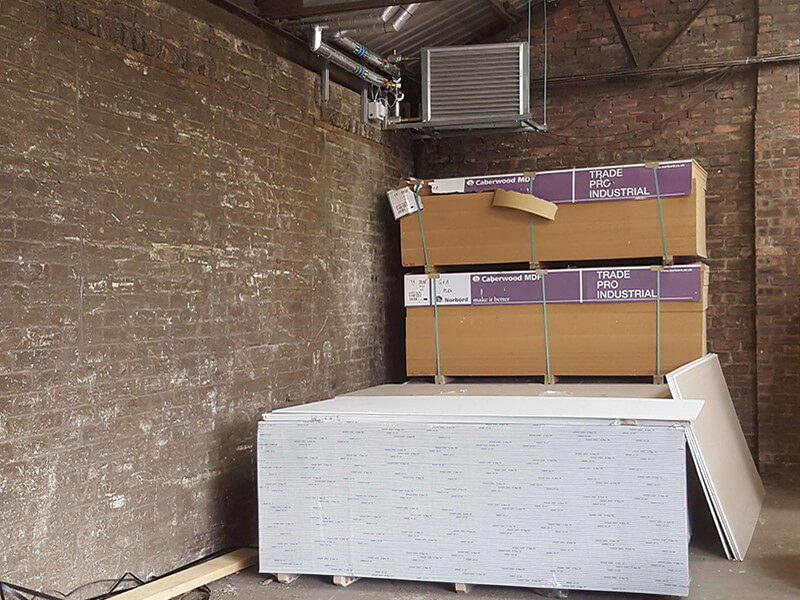500kW Woodchip Boiler
Gilmour and Aitken is a family run timber merchant established in 1852 which specialises in the supply of sustainably sourced, seasoned, tropical hardwoods for the marine and construction industries. It also has a substantial, but more conventional, timber supply business to both individuals and trade from its premises in Alexandria, Dunbartonshire.
Timber drying is a fundamental, but energy-intensive, requirement in the preparation of timber for sale and Dunster was contacted to determine the feasibility of installing a biomass boiler to replace the mains gas boiler which heated the timber drying kilns. As Dunster investigated the site, it became apparent that not only was a substantial volume of waste timber generated on site which could be used as a fuel but also other areas could benefit from biomass heating. A scheme was developed to deliver heat to the kilns, various offices and meeting rooms and the trade centre which contains timber and other products for sale to the public. Dunster was chosen to deliver the project due to the thorough nature of their quote and their ability to install within a demanding timeframe.
Fuel Supply and Chip Handling
Offcuts from timber processing are chipped periodically by a contractor into a bulk chip store situated adjacent to the hopper and plant room. A telehandler with bucket is used to transfer chips as required from the bulk store to the hopper.
System Design and Installation
Dunster designed a heat distribution system which minimised disruption to the ongoing business but provides enhanced heating for the offices, meeting rooms and trade centre. The mains gas boiler has been retained as an automatic backup system for the kilns providing a welcome level of redundancy which was not available in the past. The 15,000-litre Galu thermal store allows the biomass boiler to operate at peak efficiency even when demand is low in the summer or when the kilns or off.
Benefits
Not only does the company benefit from substantial CO2 savings and a return on investment of around 20% but, instead of paying to dispose of waste timber, it has become a valuable fuel resource. The project has also resulted in improved heating of the offices whilst the addition of heating in the trade centre allows long term storage of building products such as plasterboard which used to deteriorate rapidly in the cold and damp conditions.
March 2016
Industrial hardwood drying and heating of associated offices, warehouses and trade centre
Froling Turbomat 500kW woodchip boiler with 15,000 litre Galu accumulator tank and 5m diameter agitator / auger fuel feed. The plant room and fuel store were adapted from existing, largely redundant, industrial buildings and storage sheds.
The boiler is expected to use around 290 tonnes of wood chip to produce around 870 MWh of heat per annum.
Adjacent to the plant room and chip hopper, space has been created to form a bulk chip store. Chips are transferred from the bulk store into the hopper using a telehandler with bucket.
The project was self-funded and is fully accredited on the non-domestic RHI scheme.
Income from the RHI and fuel cost savings are expected to result in a return on investment exceeding 20%.
More than 190 tonnes per annum compared to a modern gas-fired system.
Our 90kw ETA Hack wood chip boiler suffered water damage in late 2014. Dunster Biomass Heating was the only company that could fix the issues without costing me new components. What we have learned is simple. Experience is key! When there is an unusual problem you need more than a guy with a manual – you need a company with the expertise, ability and willingness to solve the problem!

